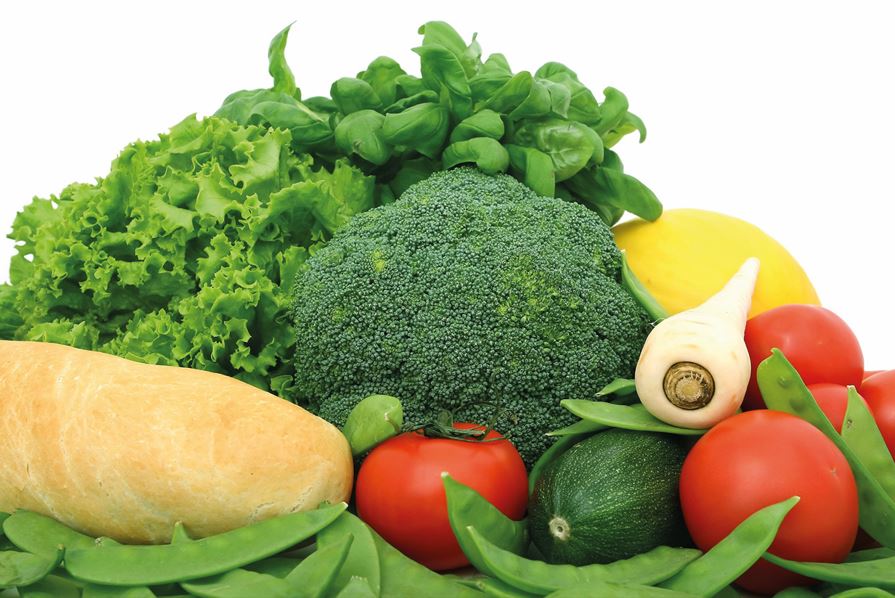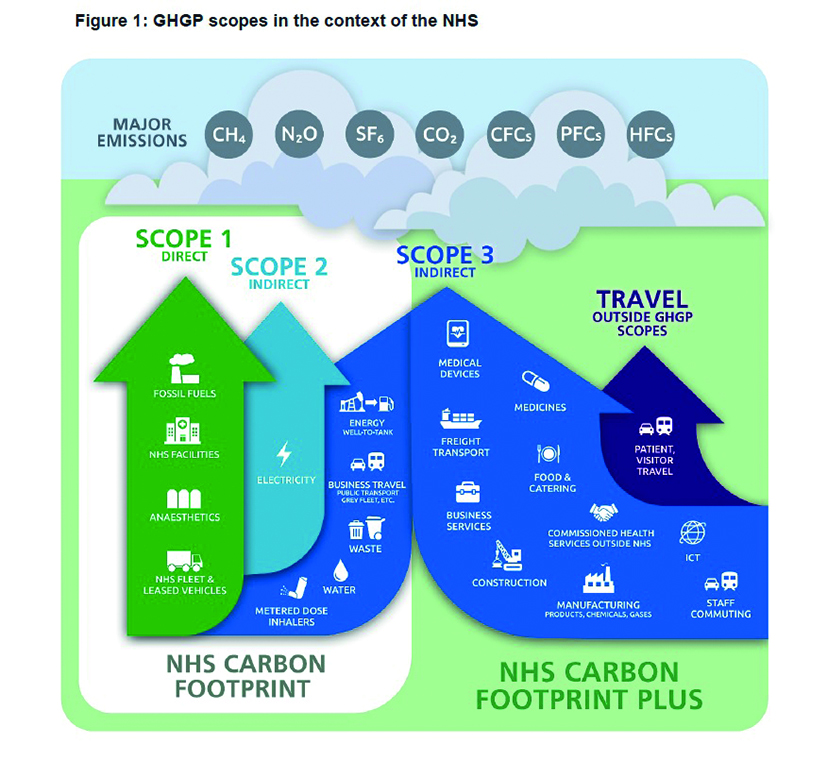
Why improvements to NHS catering services will be critical in the drive for net zero
NHS England estimates that hospital food and catering services produce 1.5 kilotonnes of carbon dioxide equivalent – 6% of the health service’s total greenhouse gas emissions. And, with a target of reaching net zero carbon emissions by 2040 over emission the NHS controls directly – and by 2045 for those it can influence, for example across its supply chain – the race is on to find innovative ways to reduce the impact. NHS England’s Delivering a Net-Zero National Health Service report provides a detailed account of the interventions required to achieve that ambition, focusing on the The Independent Review of NHS Hospital Food in England as an important means of delivering healthy and climate-friendly food standards that will ‘signal a more-systematic approach to procuring and producing sustainable and healthy food for patients, visitors, and staff’.
WASTE NOT, WANT NOT
This may include ‘ensuring suppliers have sustainable production and transportation practices, sourcing local supplies of food, the use of seasonal produce, increased use of sustainably-sourced fish, and efforts to limit food waste’. Evidence submitted to the review highlighted both the environmental and health benefits of an increased consumption of plants and a reduction in consumption of highly-processed foods, including significant reductions in carbon emissions, water consumption, land use needed for food production, and a reduced risk of cardiovascular disease, stroke, and obesity. As part of its net zero commitment, catering provider, apetito, was the first supplier to produce a reduced-carbon menu for the NHS, which will enable trusts to significantly cut the CO2 emissions associated with their food production and service activities. Working in conjunction with onsite facilities provider, Mitie, the new menus were first introduced at St George’s University Hospital NHS Foundation Trust, helping to save an estimated 23 tonnes of CO2 every year – the equivalent of over 34 return flights from London to New York. Lee Sheppard, apetito’s director of corporate affairs and policy, said: “As the first meals provider that is taking reduced carbon footprint menus to the NHS, we were excited to launch this ground-breaking initiative while still delivering great-quality meals, without compromising nutrition or price.
ON BALANCE
“While beef may only represent 5% by weight of all the ingredients we use that we supply, it does, however, account for 37% of that ingredient carbon footprint as opposed to say, poultry, which for 5% of weight represents only 7% of our ingredient carbon footprint. “However, the key learning for us is one of balance, and that small changes can have a large impact. “For example, on one hospital’s two-week menu cycle, we have only reduced the number of red meat options from 22 to 20. The patient sees very little change in choice – as on the menu there are still 46 meat dishes, seven fish dishes, 21 vegetarian meals, and 10 vegan options – but these small changes make a significant difference to the overall carbon footprint, with a saving of around 11%.” Sodexo is also working with NHS trusts to help reduce carbon emissions around catering services.
MORE-INFORMED CHOICES
Its WasteWatch solution was first introduced at North Devon District Hospital in March 2021. The 400-bed hospital serves 170 meals to staff every day and the WasteWatch technology enabled catering managers to review the number of items produced against those sold, leading to more-informed choices when it came to batch cooking and order quantities. And, with better-managed stock levels, most spoilage is now avoided, although any food that does end up going to waste is pulped before being sent off for energy conversion in an anaerobic digester. Overall, the hospital has saved over 28 metric tonnes of CO2 and 4,000kg of food waste has been kept out of landfill. Additionally, the hospital began using DRIVE, a food management process that helps companies plan their food journeys. By creating tailored menus, the system allows the kitchen team to source available food items in the correct quantity, at the right time.
THE NEXT STEP
And NHS facilities services provider, Civica, has launched its Saffron catering management software, which offers dynamic stock management and pulls in information from sales and production to provide real-time, accurate stock data, helping to reduce food waste and drive more-environmentally-friendly procurement activities. A spokesman said: “With so many perishable items involved in maintaining a healthy food service, it is important that organisations keep minimal stock, but can easily access a clear snapshot at any time. “Saffron offers an all-encompassing view of operations to drive efficiency, support compliance, and enhance visibility and it accurately measures and records waste and can report on this in terms of a percentage of revenue or consumption – helping caterers to take the right steps to minimise the amount of food wasted.”
A PLAN OF ACTION
To further their efforts, most NHS trusts have now published a Hospital Food and Drink Strategy, laying out plans to eliminate fossil fuels from the preparation and delivery of food through the electrification of equipment and adoption of more efficient technologies. And legislation is expected to come into force which will ban the use of single-use plastics in NHS operations – much of which comes from catering services.
